An Enchantment of Ravens, by Margaret Rogerson
4.5 Stars
°☆.。.:*・°.:*・☆°☆.。.:*・°.:*・☆°°☆.。.:*・°.:*・☆°☆.。.:*・°.:*・☆°
BLURB
 Isobel is a prodigy portrait artist with a dangerous set of clients: the sinister fair folk, immortal creatures who cannot bake bread, weave cloth, or put a pen to paper without crumbling to dust. They crave human Craft with a terrible thirst, and Isobel’s paintings are highly prized among them. But when she receives her first royal patron—Rook, the autumn prince—she makes a terrible mistake. She paints mortal sorrow in his eyes – a weakness that could cost him his life.
Isobel is a prodigy portrait artist with a dangerous set of clients: the sinister fair folk, immortal creatures who cannot bake bread, weave cloth, or put a pen to paper without crumbling to dust. They crave human Craft with a terrible thirst, and Isobel’s paintings are highly prized among them. But when she receives her first royal patron—Rook, the autumn prince—she makes a terrible mistake. She paints mortal sorrow in his eyes – a weakness that could cost him his life.
Furious and devastated, Rook spirits her away to the autumnlands to stand trial for her crime. Waylaid by the Wild Hunt’s ghostly hounds, the tainted influence of the Alder King, and hideous monsters risen from barrow mounds, Isobel and Rook depend on one another for survival. Their alliance blossoms into trust, then love, violating the fair folks’ ruthless Good Law. There’s only one way to save both their lives, Isobel must drink from the Green Well, whose water will transform her into a fair one—at the cost of her Craft, for immortality is as stagnant as it is timeless.
Isobel has a choice: she can sacrifice her art for a future, or arm herself with paint and canvas against the ancient power of the fairy courts. Because secretly, her Craft represents a threat the fair folk have never faced in all the millennia of their unchanging lives: for the first time, her portraits have the power to make them feel.
Find it on…
GR | Amazon | Barnes & Noble
°☆.。.:*・°.:*・☆°☆.。.:*・°.:*・☆°°☆.。.:*・°.:*・☆°☆.。.:*・°.:*・☆°
STATS
Pages: 300 (hardcover)
Published by: Margaret K. McElderry Books
Published on: 26th of September, 2017
°☆.。.:*・°.:*・☆°☆.。.:*・°.:*・☆°°☆.。.:*・°.:*・☆°☆.。.:*・°.:*・☆°
REVIEW | Minor Spoilers!
An Enchantment of Ravens could be more aptly named An Enchantment of Words. Seriously, I was pulled right past the inky words and deep into the story. The novel was so captivating that I didn’t resurface until the afternoon light bled through the windows.
The main character, Isobel, has a lovely narrative voice. As I was reading the book, I really felt her personality shine through Rogerson’s choice of words and patient portrayal of Isobel’s thought processes. I haven’t read such engaging first-person narration in a very long time. If I had to sum up Isobel as a character, I would definitely say that Isobel is a conventional heroine. Although Isobel is quite conventional, she is so nicely fleshed out that she earns her place on my shelf of distinguished heroines.
Isobel is conventional in the sense that she is the type of heroine who seeks to forge her own path through pure will and strength, which is a popular type of heroine currently in the YA genre. Isobel possesses will, manifested through her unwillingness to turn into fae and her fierce protection of her loved ones (the latter source of motivation is very common). However, this is pretty standard for her “type of heroine”; it doesn’t really make Isobel special. What made me appreciate her as her own unique character was the type of strength she had and the source of that. Isobel very clearly possesses her strength through resilience and decisiveness. She is resilient in that she can easily see past the facades of everyday life whilst understanding and accepting her powerlessness in the status quo, yet remain positively determined to survive in a world with the odds stacked against her. I really appreciated this maturity in Isobel. She is also decisive in that she shows tremendous bravery in the face of distressing situations. She is able to follow her plans, values and decisions almost heartlessly (i.e. her emotions won’t deter her). And it is from these sources that Isobel derives her distinct grit. Rogerson embraces the unwilling heroine while developing this trope further, which pushes Isobel into the realm of realism.
The conflict of the story begins as she is dragged right out of familiarity and onto a journey into the land of the fair people. Isobel is of course, no longer within her realm of expertise (i.e her parlour) as Isobel is first and foremost a painter. I loved this aspect of Isobel’s character and Rogerson’s research into the art of painting really shows, but I digress. Since she is in unfamiliar territory, Isobel logically needs to rely on someone, which in this case, is Rook. However, Rogerson seems quite unwilling to portray Isobel as a completely powerless heroine, perhaps to avoid caging Isobel in the damsel-in-distress trope. This unwillingness is quite blatantly displayed by making Isobel scoff at various clichés like the below:
“I chanced a look at Lark, not liking the way the world blurred out of focus when I turned—this was not the time to start swooning like a storybook maiden.”
I think this quote would do much better without the simile attached at the end. Isobel is the conventional unwilling hero who falls in love with someone. So, what? Rogerson has already done so well in fleshing Isobel out that this refusal to wholly embrace the unwilling hero trope – the very basis of Isobel’s character – is really unnecessary and pointless.
On the other hand, I did really love Rogerson’s portrayal of Isobel and Rook’s relationship. As I read the book, I found myself hesitating to rule it out as simply love at first sight because it really wasn’t love at first sight. Isobel herself actually identifies her initial feelings towards Rook as a “feverish infatuation”. This acknowledgement and self-awareness again serves the highlight Isobel’s wonderful maturity. In general, Rogerson portrays the relationship dynamics between Isobel and Rook quite well; Their interactions really made the progression of the relationship seem natural. Rook’s own character development is also wonderfully interwoven with the development of the relationship.
Another aspect I loved about this book was Rogerson’s portrayal of the fae. I absolutely adore books about fae, but the portrayals of the fae are usually a hit or miss for me. I’m super glad to say that I thought Rogerson’s portrayal was a unique twist that I haven’t read before. Instead of portraying the fae as some sort of superhuman race, Rogerson took an alternate path and made the fae practically the antithesis of humans as being fae meant stripping almost everything that gives value to humanity. Personally, I felt the fae were decay personified (fae-ified? hehe):
“The pastry withered and fuzzed gray with mold. Whatever filling had been inside dribbled out as an unidentifiable black sludge, reeking of decay. Even worse, the deflated morsel squirmed in my hand; it was full of maggots.”
A completely unexpected but absolutely riveting portrayal. Rogerson also gave the fae really interesting personalities. One of my favourite fae characters in the novel is Gadfly, who I would consider one of the villains in the story.
Initially, I didn’t really like Gadfly as his characterisation pales in comparison to Rook and Isobel. Gadfly is portrayed as a sort of iceberg character – there’s so much more to him, but because we’re studying him through the eyes of Isobel, a lot of his character is unknown to us. Perhaps that is why I feel like his characterisation is missing something. Considering this, however, I felt that I was always drawn to the mystery and twists that surround him despite his mediocre characterisation. For example, I was surprised about Gadfly’s true identity. I took his first appearance as a reflection of his identity even though Rogerson was dropping hints easily seen a mile away. Also, Gadfly’s conversations with Isobel are perplexing to the point that they vex me. Again, perhaps this is because Isobel can’t quite interpret the meaning to what he is saying since Isobel is not fae.
A fae character I would’ve liked to see more was Hemlock. She had a stunning entrance in the first half of the story. Similar to Gadfly, she had mysterious air. I wanted to know a lot more about her but she served mostly as a plot device. Other fae characters I quite liked included Aster. Aster was a very appropriate character to include in the novel as she provided a good point of comparison to the other fae. Aster also provided solid credence to Isobel’s dislike of the influence that the fae had over humans.
A fae character I didn’t really like was Lark. I felt that Rogerson was trying to portray Lark as another iceberg character who is superficially vapid but this didn’t quite come across. Hmm. Also, I don’t really understand why Lark decided to help Isobel near the end???
Let’s talk about the Alder King. Suffice to say, he ends up on my list of the most unremarkable villains I have ever encountered. That being said, the Alder King had HUGE potential. A fae who people basically worshipped? A fae who realised the pettiness of his desire for crafts? A fae who decided that it was better to care little to nothing about his race? So many questions but so little answers. I feel like Rogerson took the easy way out with this one by making the Alder King simply unfeeling.
The plot of this novel was quite reminiscent of novels in adventure-fantasy genre, as demonstrated by the first half of the book which detailed Rook and Isobel’s travelling (translation: escape from various perils on the way to “safety”). Rogerson included a masquerade ball which is pretty standard for a young adult novel. I think Gadfly sums up my opinion regarding the plot quite well. Perhaps it could’ve been more “singular”.
The world-building was definitely there. The descriptions were intriguing – especially her portrayal of the effect that the princes had on different locations with the sudden changes in weather and everything. What I did like about the world-building was Rogerson’s inclusion of the rotting parts of the land. Rogerson skilfully crafted a reflection the fae in the very land upon which they reside. I loved this parallel but I thought that it could’ve been pursued further. The rotting of the land wasn’t very well explained but I guess that this loose thread will provide the basis for future books so it’s all good.
To wrap this review off, I’d like to end it on one of the most amazing things about this novel: the humour. Oh gosh – the humour was awesome. The ironies literally had me cackling. The following isn’t one of the ironic aspects of this novel but is nonetheless absolutely hilarious:
“The thrill I felt whenever he looked at me was as captivating as it was dangerous, like having one’s gaze met unexpectedly by a lynx or a wolf in the woods at dusk.
Which was absolutely the last thing I should be thinking about. That was that. Time for this spying session to end.”
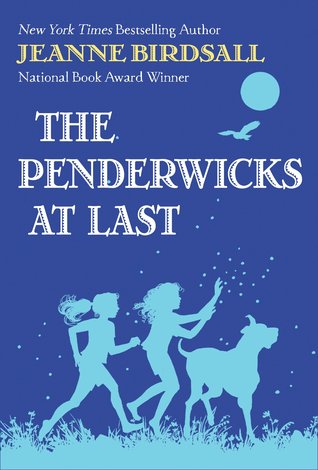 The Penderwicks at Last, by Jeanne Birdsall
The Penderwicks at Last, by Jeanne Birdsall
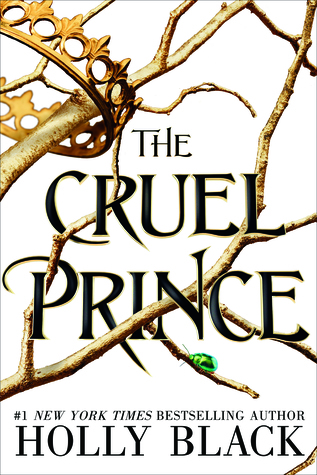 The Cruel Prince, by Holly Black
The Cruel Prince, by Holly Black Isobel is a prodigy portrait artist with a dangerous set of clients: the sinister fair folk, immortal creatures who cannot bake bread, weave cloth, or put a pen to paper without crumbling to dust. They crave human Craft with a terrible thirst, and Isobel’s paintings are highly prized among them. But when she receives her first royal patron—Rook, the autumn prince—she makes a terrible mistake. She paints mortal sorrow in his eyes – a weakness that could cost him his life.
Isobel is a prodigy portrait artist with a dangerous set of clients: the sinister fair folk, immortal creatures who cannot bake bread, weave cloth, or put a pen to paper without crumbling to dust. They crave human Craft with a terrible thirst, and Isobel’s paintings are highly prized among them. But when she receives her first royal patron—Rook, the autumn prince—she makes a terrible mistake. She paints mortal sorrow in his eyes – a weakness that could cost him his life.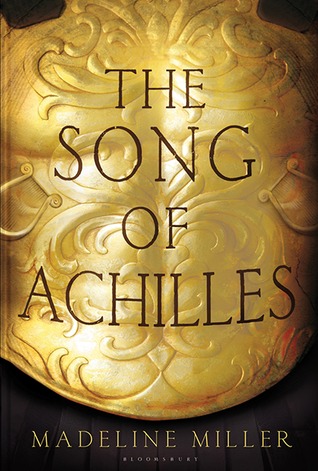
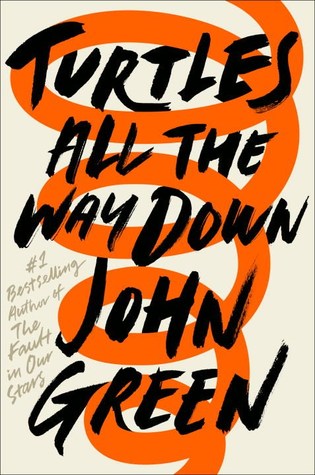
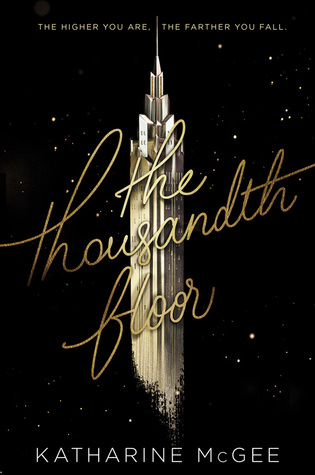


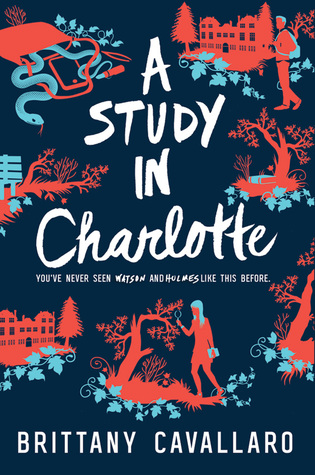 A Study in Charlotte, by Brittany Cavallaro
A Study in Charlotte, by Brittany Cavallaro What I’m Currently Reading
What I’m Currently Reading
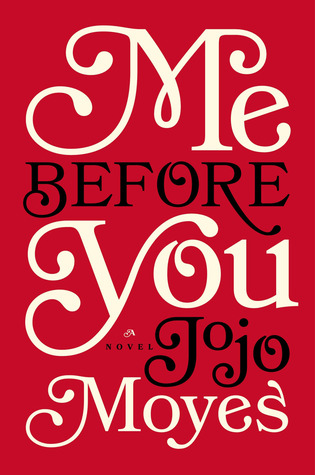

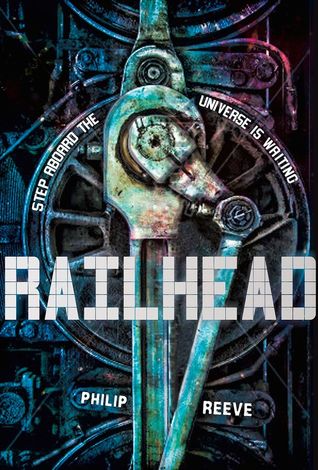
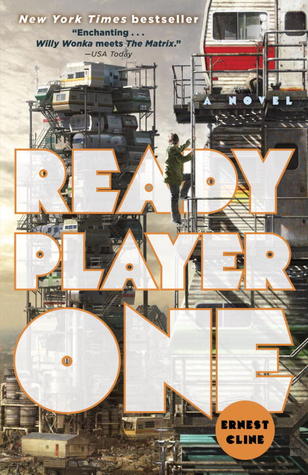
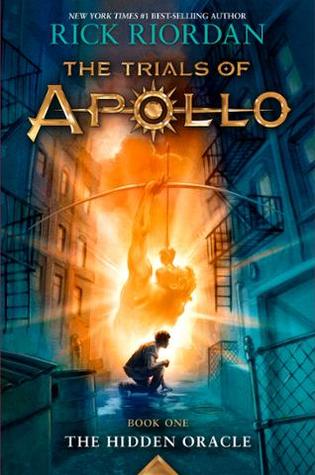
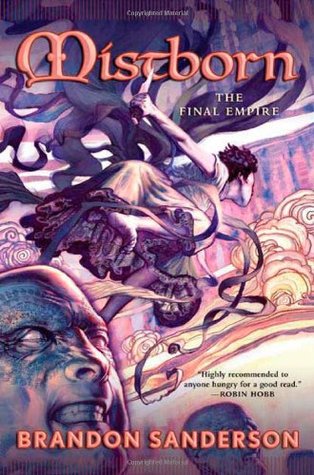


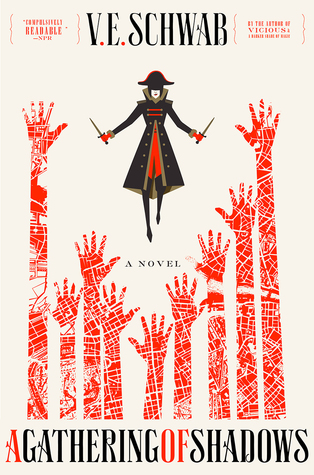 Series That You Love
Series That You Love